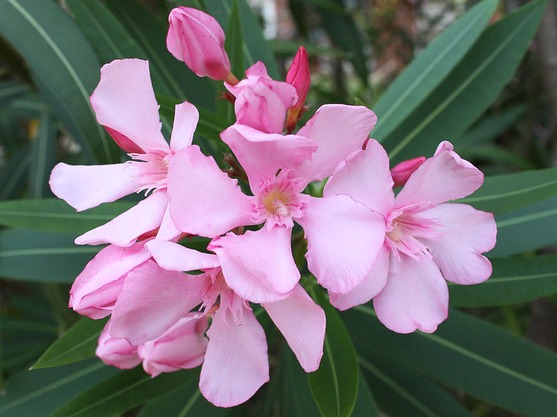Is that plant poisonous?
16 Feb 2022
SMALL FARMS - FEBRUARY 2022 - ANIMAL HEALTH & DISEASES
By Kaitlyn Braine
District Veterinarian
P: 03 5881 9916 | M: 0499 339 018 | E: katelyn.braine@lls.nsw.gov.au
It can be difficult to have a beautiful garden and run livestock, and it can be heartbreaking when livestock unintentionally get in and ruin a lovely garden! But did you know that gardens can sometimes cause issues for stock too? So, before you use a few sheep to mow the lawn, or feed those garden clippings to your stock, you should ask yourself: Do you know if the plants and trees in your garden are safe for your livestock?
Unfortunately, not all trees and plants commonly found in or around gardens are safe for livestock and quite often they can be fatal. Listed below are a few of the more common plants and trees you might find in or around your garden that are toxic to livestock. This is by no means is an extensive list of all toxic plants, if you do not know if a plant is toxic or not, it is always best to assume that it is and prevent access to the plant.
Trees:
Sugar Gums and Prunus spp. contain cyanide/prussic acid that can cause sudden death within hours of consumption. White cedar trees are toxic to sheep, cattle, and pigs. The small white berries are the most toxic part of the tree. Toxicity can cause muscle tremors leading to collapse, seizures, and death within 48 hours.
Shrubs:
Oleander and Yew are toxic to ruminants, pigs, and horses, and cause sudden death due to a fatal heart attack. It can take as little as five oleander leaves to kill a cow.

Plants:
Foxglove and mother of millions can also cause a fatal heart attack. Some succulents from the Crassulaceae family can affect the heart, gastrointestinal system and/or cause nervous signs. Rhododendrons and azaleas can affect the gastrointestinal and/or respiratory systems.
Most cases of toxicity due to garden plants occur from livestock grazing on plants located in the garden by direct access or from over the fence. Toxicities also occur when stock graze garden clippings that contain toxic plants. In some plants, the clippings increase in toxicity as they dry out and they quite often become more palatable. So, to keep your garden and your livestock happy and healthy be careful where you put your stock and what you feed them.
For further information and advice on plants toxic to livestock, contact your District Vet on 1300 795 299.